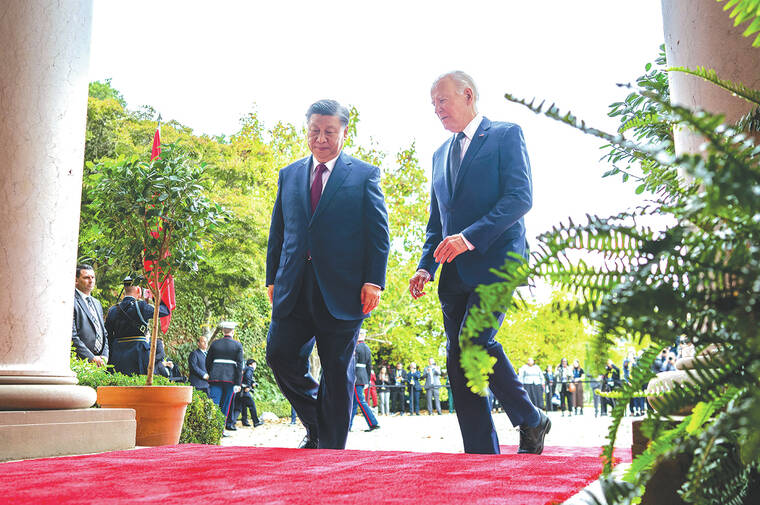US turns to China to stop North Korean troops from fighting for Russia
WASHINGTON — The Biden administration is turning to an unlikely interlocutor as North Korean troops move into combat position to help Russia in its war in Ukraine.
To convey threats to North Korea, U.S. officials are talking to China.
ADVERTISING
And U.S. officials say they hope the conversations further stoke any suspicions China might feel about the troop deployment.
The U.S. government has assessed that China is uneasy about the rapidly strengthening security partnership between Russia and North Korea. China is North Korea’s longtime ally and its most powerful economic and military partner, but the Russia-North Korea collaboration means Beijing has to increasingly share influence over Pyongyang with Moscow.
And North Korea’s intervention in Ukraine draws Europe deeper into East Asian security matters, which China does not want. On Thursday, North Korea launched an intercontinental ballistic missile, its first such test in almost a year, raising alarms among nations around the world.
The State Department has raised the issue of the troops directly with Chinese officials in recent days, a senior administration official told The New York Times. The latest conversation took place on Tuesday, when Kurt Campbell, the deputy secretary of state, Daniel J. Kritenbrink, the department’s top Asia official, and James O’Brien, the top Europe official, all met with Chinese diplomats for several hours at the home of Ambassador Xie Feng in Washington.
On the surface, it might seem that China would support the idea of North Korean troops fighting with Russia against Ukrainian soldiers.
Yet China’s views on the issue are murky, and U.S. intelligence agencies are trying to figure out what China’s leader, Xi Jinping, and other top Chinese officials think of the deployment, which President Joe Biden has called “very dangerous.”
There is no doubt that Chinese officials will be watching to see whether Russia shares nuclear and space technology with North Korea in exchange for its troops.
“From a Chinese perspective, you’re concerned about specific technologies that the Russians could help with to advance the program that much more,” said John Delury, a historian of modern China and the Cold War. “And there’s also intelligence sharing — this is a classic way that countries with this kind of partnership rapidly upgrade their relationship. If you’re China, you’re worried about Russia and North Korea sharing intelligence, which could include intelligence on China.”
This article originally appeared in The New York Times.
© 2024 The New York Times Company


